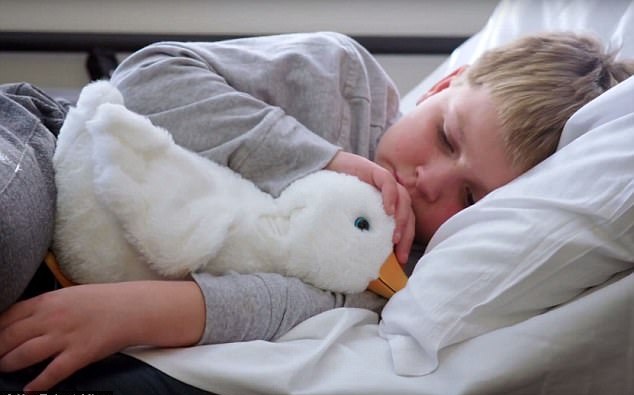A plush, robotic duck may soon become a fixture in the world of children who have cancer a social robot that can be silly, happy, angry, scared or sick just like them, and help them cope creatively with their illness through the power of play.
The duck, developed by robotics expert Aaron Horowitz, is undergoing testing and is expected to be widely distributed by the end of this year, according to Daily Mail.
Horowitz said he was diagnosed as a child with human growth development deficiency and had to give himself daily injections for five years.
Health care facilities from children’s hospitals to nursing homes have been experimenting for more than a decade with the use of robots for social companionship and emotional health.
Some devices look like quintessential robots; others are designed as cute animal toys, to lessen a person ‘stress in the same way a real pet might.
The machines’ technological sophistication varies, but they have similar aims: improving patients’ psychological well-being, reminding them of health-related tasks or teaching them about health goals.
Horowitz said they make no claims the duck has medicinal value – instead, they want the ducks to provide comfort, help them cope with treatment, and distract them from what they’re going through.
The duck can make the soothing sounds of a beach or rainforest and quack tunes. It also does deep-breathing exercises the child can mimic to relax. It has an attachable tube to emulate chemotherapy injections.
Kelli Daniels, said her 12-year-old son, Ethan, has B-cell lymphoblastic lymphoma and must undergo at least three more years of treatment. When he was recently introduced to the duck, his eyes widened. ‘Awesome,’ he said.
He put on the various attachments that help direct the robot and was impressed by how it could sound as if it was in pain.
Ethan seemed to connect with the duck’s breathing exercises: He closed his eyes as if in meditation, breathing along.
His mom said that once Ethan receives his own duck, it could help for years.
‘It’s a way for Ethan to express himself without actually having to say it, because you don’t want to always say ‘I hurt,” Kelli Daniels said. ‘He feels like he hurts all the time.’
Sonia Chernova, an assistant robotics professor, said social robots can provide unique support as a child goes through the physical and emotional stress of cancer treatments.
A study found that children at a pediatric hospital physically and verbally engaged with it more than they did with a virtual character on a screen or a traditional toy.
Chernova hasn’t seen the duck for children with cancer, and she notes that social robotics is in its infancy. But she cited success with social robots in the education world, and with some in research with autistic children and adults.
‘Social robots are not meant to replace your social support network or your social interaction with others, but they are there to also help,’ she said.
N.H.Kh

